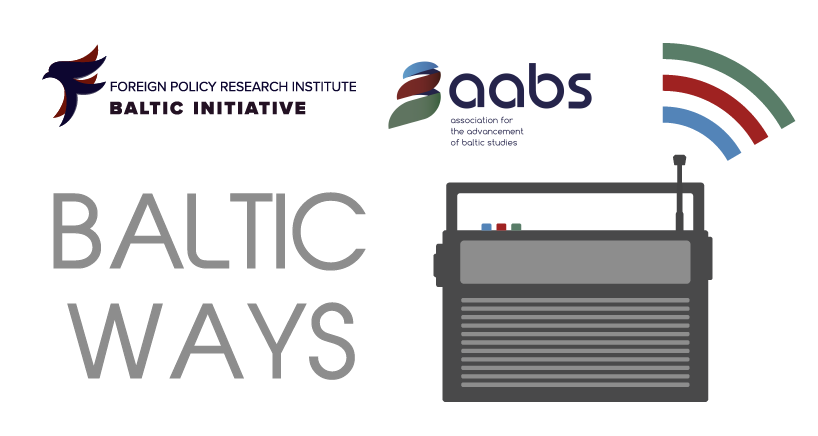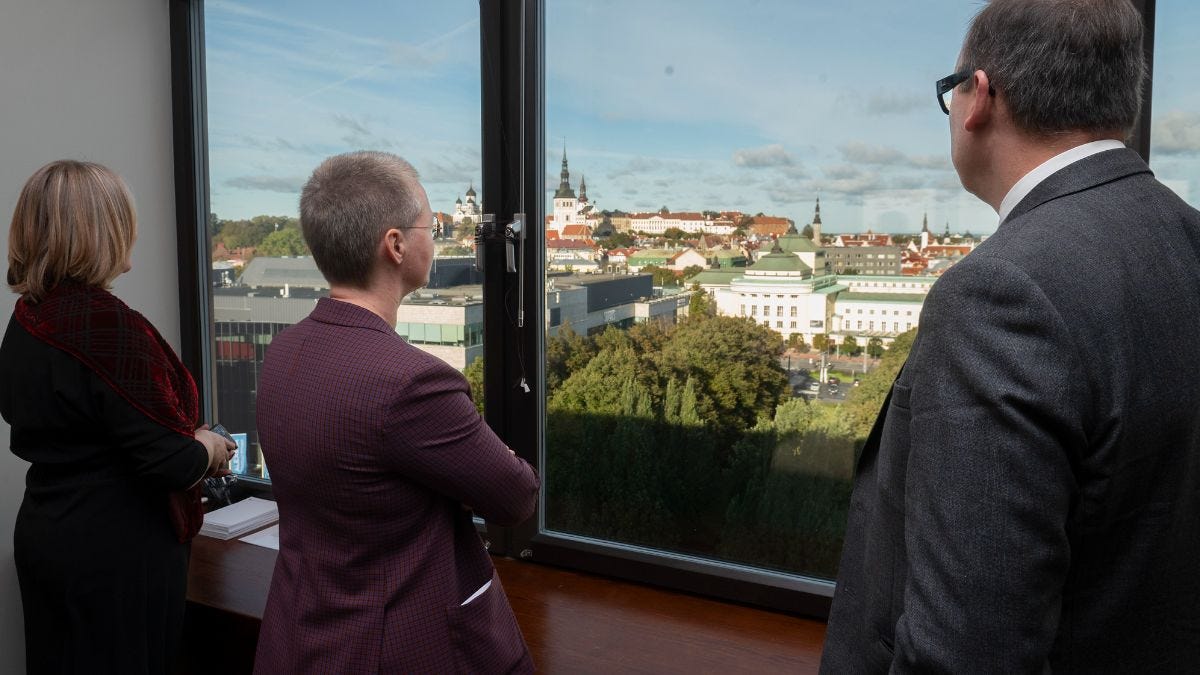Baltic Roundup: October 2023
October 2023
On 13 October 2023, the Minister of Foreign Affairs of Latvia, Krišjānis Kariņš, was in Estonia on his first working visit to Estonia. (Flickr | @latvianmfa)
Dear readers,
As the weather turns cooler, a look back at the events of October in the Baltic states.
FOREIGN AFFAIRS
Governments of Estonia, Latvia, and Lithuania showed support for Israel following the brutal attacks on Israeli civilians by the terrorist organization Hamas on Oct. 7. Chairmen of the Baltic countries' parliamentary foreign affairs committees traveled to Israel to express solidarity, including calling for increased sanctions on Iran and noting “deep concern” with increased collaboration between Iran and Russia in Ukraine. Several thousand Estonians, Latvians, and Lithuanians live in Israel, some of whom evacuated on repatriation flights. All three Baltic countries were among 14 EU states that abstained from the Oct. 27 UN resolution seeking a humanitarian truce in Gaza following the start of Israel's military response, which has led to a catastrophic humanitarian crisis. Rallies have been held both in solidarity with Palestinian civilians in Gaza and in support of Israel.
The Baltic countries — among Ukraine's staunchest allies in the war against Russia — are stepping up efforts to reach out to average Americans as support for Ukraine wavers among Republicans.
SECURITY
Schools across Estonia, Latvia, and Lithuania received a barrage of bomb threats in October, causing some officials to cancel classes for hundreds of students. While law enforcement officials said the threatening spam was intended to sow panic, there did not appear to be actual danger. Last year, the Baltic countries received one-third of the cyber attacks Russia aimed at the European Union, said Latvian Defense Minister Andris Sprūds.
Estonia and the UK signed a long-term defense cooperation agreement. Latvia plans to purchase four MD 530F light helicopters from the United States. And, analysts consider how effective domestic resistance would be if Lithuania came under attack.
INFRASTRUCTURE
China is cooperating with an investigation into damage sustained by the Balticconnector subsea gas pipeline early in the month. The pipeline is jointly owned by Estonian and Finnish systems operators and supports an integrated gas market in the region. Finnish authorities say the breach appears to have been caused by a Hong Kong-flagged container carrier but have not made a determination on whether the damage was accidental or deliberate. A telecom cable between Estonia and Sweden was also damaged around the same time. Mateusz Kubiak argues the pipeline leak highlights a need for more coordination to protect critical infrastructure.
Latvia's Saiema has determined that there is no longer a pressing need to construct an LNG terminal in Skulte, as the capacity for Latvia's gas needs is sufficiently available in neighboring countries.
Rail Baltica signed a grant agreement for €928 million in Connecting Europe Facility funding, amounting to more than €1.1 billion when combined with national co-financing. Rail Baltica has secured funds to cover approximately 130 km of the mainline, which will connect the Baltic countries and integrate with the European rail network. A new interactive map shows the latest construction information.
OTHER AFFAIRS
Latvia's Saeima is considering mortgage rate reductions to protect borrowers from high rates. Morten Hansen, head of the economics department at the Stockholm School of Economics in Riga, says that's not good policy.
The Estonian American National Council expressed distress at Estonia's decision to close consulates general in San Francisco and New York, citing budgetary constraints. The New York consulate has operated since the 1920s, including throughout the Soviet period. Honorary Consul Jaak Treiman says the consulates are crucial for Estonia’s security.
Lithuania's Seimas Ombudsperson's Office submitted its first position to the European Court of Human Rights in a case brought by an Iraqi national concerning the detention of migrants in Lithuania. The ombudsperson, Erika Leonaitė, told the court that the conditions amounted to de facto detention and that people faced “inhumane and degrading treatment.”
READ ON
What is behind the sharp increase in Lithuanians and Latvians arrested for illegally transporting migrants in recent years?
Why are budget revenues in Latvia the lowest among the Baltic states?
Who is spreading climate change misinformation in the Baltics?
And catch up on learnings from the Rīga Security Forum.
Aitäh, paldies and ačiū,
Indra Ekmanis
Baltic Bulletin Editor
CALL FOR ARTICLES
FPRI invites article contributions for the Baltic Bulletin. We are particularly interested in pieces covering NATO, support for Ukraine, cybersecurity, and domestic politics. We welcome pitches at iekmanis@fpri.org.
Catch up on recent episodes of the Baltic Ways podcast.
New episodes are coming in November!






